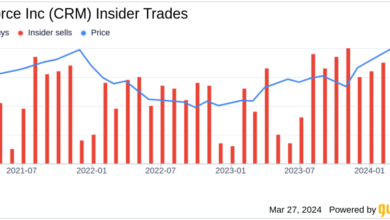This is how CRM Integration Boosts the Global Travel Industry

Wednesday, June 19, 2024
Reading Time: 5 minutes
The travel and tourism industry, a cornerstone of the global economy, is continually evolving. In a market characterized by rapid changes and intense competition, businesses must adopt innovative technologies to stay ahead. One such innovation that has revolutionized the industry is Customer Relationship Management (CRM) integration. CRM systems, especially those integrated with email management tools, have become indispensable for travel agencies and companies, enhancing their operational efficiency and significantly improving customer satisfaction.
The Role of CRM in Travel and Tourism
Customer Relationship Management (CRM) systems are designed to streamline the way businesses interact with their customers. In the travel and tourism industry, where customer interactions are frequent and multifaceted, CRM integration plays a pivotal role. It consolidates customer data, manages communications, and automates various processes, making it easier for travel agencies to deliver personalized and efficient services.
1. Centralized Customer Data Management
A CRM system acts as a central repository for all customer information. It gathers data from various touchpoints – email interactions, booking histories, preferences, and feedback – and stores it in a unified platform. This centralized approach enables travel agencies to have a holistic view of each customer, allowing for more tailored and effective communication. For instance, knowing a client’s previous travel destinations or preferences can help in suggesting personalized travel packages, thus enhancing the customer experience.
2. Enhanced Email Management
Email remains a critical communication channel in the travel industry. From booking confirmations to itinerary updates and customer inquiries, the volume of emails handled by travel agencies can be overwhelming. CRM systems integrated with email management capabilities, like those offered by Penguin Travel Software, streamline this process by allowing agencies to manage all their emails directly from the CRM dashboard. This seamless integration ensures that important communications are not missed and can be accessed and managed efficiently.
3. Automation of Routine Tasks
CRM integration automates many routine tasks, freeing up valuable time for travel consultants. Tasks such as sending booking confirmations, updating itineraries, and managing follow-ups can be automated through the CRM system. This not only reduces the workload for staff but also ensures that these tasks are carried out promptly and accurately, improving the overall efficiency of the travel agency.

Boosting Operational Efficiency with CRM Integration
Operational efficiency is a critical factor for success in the travel and tourism industry. CRM integration brings several advantages that help travel businesses operate more smoothly and effectively.
1. Streamlined Booking Processes
With CRM systems, the booking process becomes more streamlined. Travel agents can access all the necessary information from a single platform, making it easier to manage bookings and customer interactions. The ability to link emails directly to specific bookings, as demonstrated by Penguin Travel Software’s email CRM integration, ensures that all relevant communication is readily available. This reduces the time spent searching for information and allows for faster and more efficient service delivery.
2. Improved Workflow Management
CRM integration supports better workflow management by allowing tasks to be assigned and tracked within the system. For example, tasks related to a specific booking or customer can be managed and monitored through the CRM platform. This helps in ensuring that all team members are on the same page and that no critical task is overlooked. Enhanced workflow management translates into more reliable service and a better customer experience.
3. Better Resource Allocation
Effective resource allocation is another benefit of CRM integration. By analyzing customer data and interaction histories, travel agencies can better understand demand patterns and allocate resources accordingly. This means having the right number of staff available during peak times or focusing marketing efforts on the most profitable customer segments. Better resource allocation leads to cost savings and increased profitability.

Enhancing Customer Satisfaction through CRM Systems
Customer satisfaction is paramount in the travel and tourism industry. CRM integration plays a significant role in enhancing customer satisfaction by providing personalized service, timely communication, and consistent support.
1. Personalized Customer Interactions
Personalization is key to building strong customer relationships. CRM systems enable travel agencies to provide personalized service by capturing detailed customer profiles and preferences. Whether it’s recommending destinations based on past travel history or remembering special occasions like birthdays, personalized interactions make customers feel valued and appreciated. This level of service can lead to higher customer loyalty and repeat business.
2. Proactive Customer Support
With CRM systems, travel agencies can offer more proactive customer support. Automated alerts and reminders can be set up to notify agents of upcoming travel dates, special requests, or potential issues. This allows for timely and proactive communication with customers, addressing their needs before they even ask. Such proactive support enhances the customer experience and fosters trust and satisfaction.
3. Efficient Handling of Customer Inquiries
Handling customer inquiries efficiently is crucial for maintaining high satisfaction levels. CRM systems with integrated email management allow travel agencies to respond to customer queries promptly and effectively. Features like centralized email storage, automated responses, and quick access to customer histories ensure that inquiries are handled smoothly and professionally. This reduces response times and enhances the overall customer service experience.

Driving Business Growth with CRM Integration
Beyond operational efficiency and customer satisfaction, CRM integration drives business growth by providing valuable insights and supporting strategic decision-making.
1. Data-Driven Decision Making
CRM systems collect and analyze vast amounts of customer data, providing insights into behavior, preferences, and trends. Travel agencies can leverage this data to make informed decisions about marketing strategies, product offerings, and service improvements. For instance, understanding which destinations are most popular among certain demographics can help in crafting targeted marketing campaigns that resonate with specific customer segments.
2. Increased Revenue Opportunities
By streamlining operations and improving customer interactions, CRM integration opens up new revenue opportunities. Personalized service and proactive support can lead to upselling and cross-selling opportunities, where customers are offered additional services or upgrades that enhance their travel experience. Additionally, efficient management of customer relationships can lead to higher retention rates and more referrals, driving revenue growth.
3. Competitive Advantage
In a competitive market, having a robust CRM system can provide a significant advantage. Travel agencies that adopt CRM integration can differentiate themselves by offering superior service and efficiency. This can attract more customers and set the agency apart from competitors who may still rely on less efficient, traditional methods of managing customer relationships and operations.
CRM integration is revolutionizing the travel and tourism industry by enhancing operational efficiency, improving customer satisfaction, and driving business growth. With features like centralized customer data management, enhanced email management, and automation of routine tasks, CRM systems provide travel agencies with the tools they need to succeed in a dynamic and competitive market.
Penguin Travel Software’s email CRM integration exemplifies how these technologies can transform travel management, offering seamless email handling, superior organization, and centralized information storage within bookings. As the industry continues to evolve, embracing CRM integration will be key to staying ahead and delivering exceptional travel experiences.
By leveraging the power of CRM systems, travel agencies can streamline their operations, provide personalized and efficient service, and ultimately achieve greater success in the global travel and tourism market.
Tags: benefits of CRM integration for travel agencies, CRM, CRM Integration, customer experience, Email Management, global travel, how email CRM systems enhance tourism management, Impact of CRM integration on travel industry, operational efficiency, Penguin Travel Software, Tourism, Tourism industry, Travel, Travel Management




